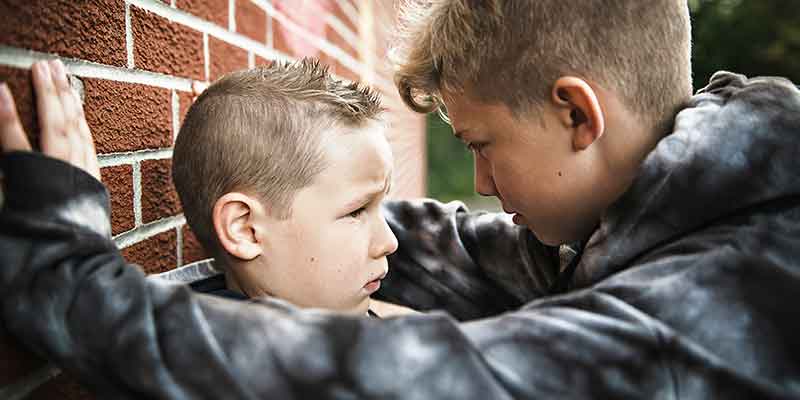
All the endless political rhetoric about bullying hits a little close to home. A while ago, a very good friend confided to me that his son, a smart, gentle and pleasant 11-year-old, was being attacked by bullies. All of a sudden I was angry.
Parents, teachers and kids ask me what makes bullies act the way they do. Dan Olweus of Norway’s Special Group for Research On and Prevention of Bullying and Antisocial Behavior, states, “Bullying involves a pattern of repeated aggressive behavior with negative intent, directed from one child to another where there is a power difference.” In other words, there’s a lot more to it than just “boys being boys” and some playground shoving. Indeed, adults can be bullies too, where it’s more subtle and not always physical. Bullies act the way they do for three reasons:
Insecurity: The only way a bully can feel big is to make others seem small. Those who are secure don’t get anything out of tearing others down. People, especially adults, don’t just bully in physical ways. Have you ever noticed the jealous little put-downs from certain people after you do something well? The person feels insecure about his or her own real or perceived lack of accomplishment. In a sad way, it helps the bully feel better about him- or herself.
It’s important to see bullying for what it is. It’s normal and natural to want to defend yourself, but when an adult does so in this context, he or she gives the bully the very satisfaction he or she is seeking.
Feeling Threatened: Some people are hostile to gain psychological power over others. “If I cut you down before you cut me down, then I have the upper hand.” It’s a self-fulfilling prophecy that assumes that everyone is out to get you. You treat everyone like an enemy and (surprise, surprise) they become your enemy. I often see people doing this with friends or love relationships. They feel that they’re going to be rejected anyway, so they go on the offensive before anyone has a chance to hurt them. Interestingly, this unhealthy behavior probably starts in relationships with parents.
Displaced Anger: Perhaps others have bullied you, and you therefore feel justified in dishing out the same. Children who are beat up at home (verbally as well as physically) sometimes respond by taking it out on their schoolmates. This may carry over into adulthood. It’s understandable, but not an excuse. After all, not all victims of childhood abuse grow up to be bullies.
The worst way to deal with a bully is to appease him or her. Making excuses for, accommodating, or attempting to reason with the bully gives him psychological visibility and validation that he needs. This in turn leads to more bullying. The current terrorist situation we face today is a good example of this. Some people cannot and will not be appeased, in spite of all the misguided – and expensive – efforts to do so.
The best way to deal with a bully is to ignore him, thus giving him psychological invisibility and invalidation. But if you’re small and 11 years old and you can’t ignore the bully, you must confront him. Be strong, assertive and take care of yourself. Say something like, “This is not acceptable. I don’t treat people this way and I won’t allow people to treat me this way.” Be prepared to do strong things like defending yourself, hanging up the phone, refusing to talk until civility is restored, or simply walking away. It all depends on the age and the situation, but behaviors that are too easily excused end up being reinforced, while behaviors that you refuse to tolerate will tend to stop.
Bullying is not always curable, and it’s not your fault if the bully doesn’t want to change. It is your fault if you don’t take care of yourself. Doing so may be hard in the beginning, but you have the power of choice to do so.
